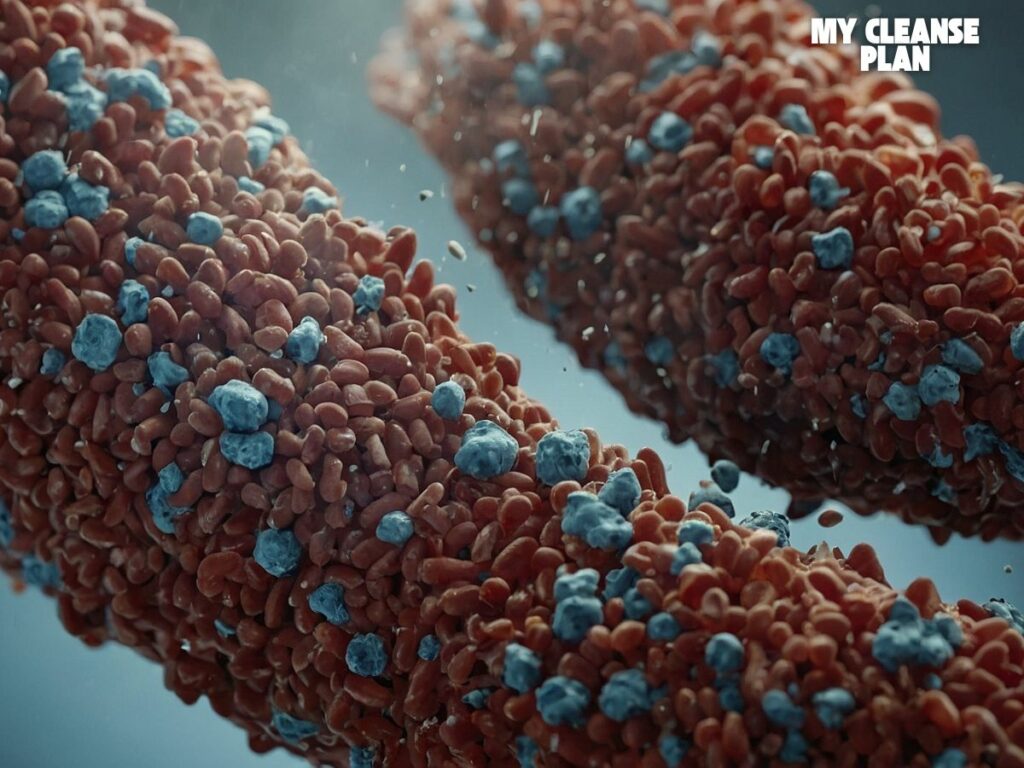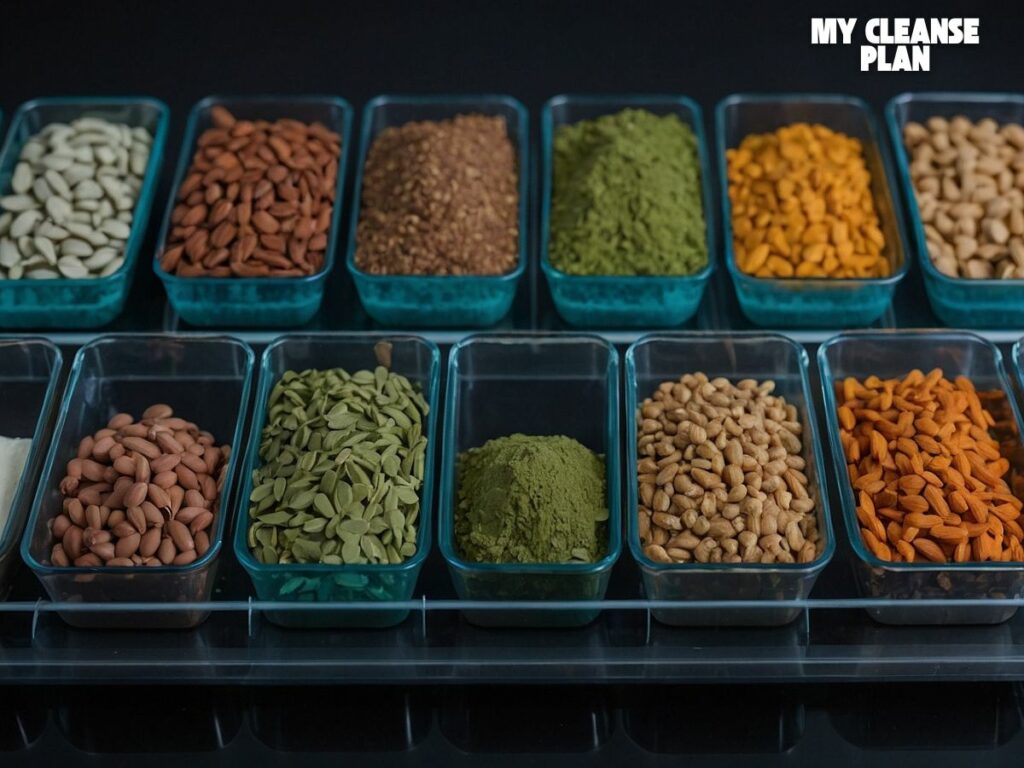How Long Will It Take to Get a Protein Level from 5 to 6?
Protein is a basic macronutrient that is essential for many body processes, such as hormone production, immune system maintenance, and muscle repair. Your health may be at risk if you have low blood levels of protein.
How long will it take to get a protein level from 5 to 6? The typical range for blood protein is 6–8.3 grams. To increase your protein level, you need to have a proper diet that is suitable for your body.
In this article, I will talk about how you can increase your protein level from 5 to 6.

Key Takeaways
Expert Guide
What Helps Maintain Appropriate Blood Protein Levels?
It is important to maintain regular activity and a nutritious diet to keep your bloodstream’s levels of protein at optimal levels. But how long will it take to get a protein level from 5 to 6?
Ensuring that your body has an adequate amount of protein that is dependent on albumin, the primary protein found in blood.
Your albumin level may indicate that you are close to malnutrition. This indicates that you are susceptible to illness or disease.

On the other hand, having high albumin levels in your body supports a robust and healthy immune system. It indicates that your liver and kidneys are both operating normally.
Albumin helps your body eliminate waste and poisons through the liver and kidneys. Maintaining proper hygiene might also be advantageous to your body’s protein chambers.
When you are ill, your body makes sure that antibodies and immunoglobulins are reinforced throughout your body to help you recover from your sickness.
How Long Will It Take to Get a Protein Level from 5 to 6?
There is no time limit to increase your protein level from 5 to 6. It depends on various factors.
What Affects the Levels of Protein?
Several variables can impact the body’s protein levels:
- Diet: Consuming foods high in protein has a direct impact on protein levels.
- Exercise: Exercise, particularly resistance training, affects the synthesis of muscle proteins.
- Metabolism: The rate at which each individual breaks down and uses protein might vary.
- Health Conditions: Several illnesses can have an impact on the amount and use of protein.

Knowledge of Protein Levels
- Normal Protein Levels: The blood’s total protein normally ranges from 6.0 to 8.3 g/dL. A value of 5 g/dL is regarded as low and could be a sign of renal problems, liver illness, or malnourishment.
- Dietary Intake: Consuming more protein in the diet is necessary to enhance protein levels. Age, degree of physical activity, and medical conditions all affect the recommended daily allowance (RDA) for protein, which is typically between 0.8 and 2.0 grammes per kilogramme of body weight.
How to Raise Your Protein Intake
- Food-Based Sources: Including foods strong in protein, such as fish, poultry, eggs, legumes, nuts, and dairy products, can help raise protein levels. For example, three ounces of chicken breast has roughly twenty-six grammes of protein.
- Monitoring Intake: A protein calculator can help estimate daily protein demands based on individual parameters, ensuring that the intake is adequate to successfully raise levels.
Calculating the Time Frame
It can take a variety of times to increase protein levels from 5 to 6 g/dL:
- Fast Increase: Notable improvements would appear in a few days to weeks if dietary modifications happen as soon as possible and protein consumption is greatly raised.
- Gradual Increase: It could take a few weeks or months for some people, particularly those with underlying medical conditions, to experience a steady rise in protein levels.
- Individual Diversity: Individual reactions to food and activity modifications can vary greatly. How quickly one can raise protein levels depends on several factors, including heredity, starting protein levels, and general health.
Customizing tactics and continuing observation can contribute to more achievement of goals.
Practical Strategies to Increase Protein Levels
You can follow these strategies.
Creating a Diet Plan High in Protein
A balanced diet plan high in protein must include a range of protein sources and guarantee sufficient intake of all nutrients.
This comprises:
- Meal Planning: Make sure every meal and snack includes protein.
- Variety: Selecting a range of proteins from plants and animals.
- Portion Sizes: Ensure the right amounts of protein are consumed.

Adding Supplements in an Effective Way
Protein supplements might be a beneficial addition for people who need more protein in their diet.
Important things to think about are:
- Correct Supplement: Considering personal preferences, dietary needs, and objectives.
- Timing: Take supplements before or after a workout or meal to increase the effects.
Create a Workout Program
A good workout regimen to raise protein levels would consist of:
- Strength training: Compound exercises and progressive overload are the main emphasis.
- Recovery: Providing enough time for rest and recuperation in between workouts.
- Consistency: Sticking to a regular workout regimen to promote protein consumption and muscular building.
Modifications to Lifestyle
Explore Also:
Creativehouseblog
Dietsheriff
Gigasecurehome
Addressing lifestyle variables is another aspect of supporting increases in protein:
- Sleep: Getting enough good sleep is essential for maintaining general health and muscle repair.
- Handling stress: Applying methods to lessen the influence of cortisol on the metabolism of proteins.
- Fluids: Sustaining adequate fluids to promote healthy metabolism and overall health.
FAQs Of How Long Will It Take to Get a Protein Level from 5 to 6?
How can I quickly increase my protein intake?
Include protein in each meal.
Consume More Legumes.
Replace Cereal with Higher-Protein Alternatives.
Incorporate collagen.
Make use of seeds and nuts.
Does protein promote rapid muscular growth?
Sure, protein is vital. However, proteins on their own are insufficient.
Does physical activity increase protein levels?
With intense activity following moderate exercise, mean total blood protein levels also rose noticeably (17% compared to baseline).
Does protein help burn fat?
Intentional calorie restriction during fat loss can also benefit from protein.
Is the C reactive protein 5.9 high?
One would consider a moderate increase in CRP from 1 mg/dL to 10 mg/dL. More than 10 mg/dL of CRP is regarded as a significant increase.






